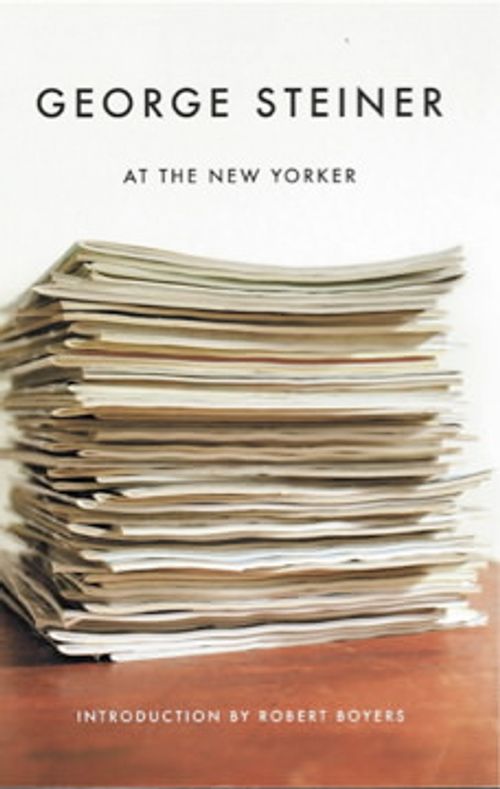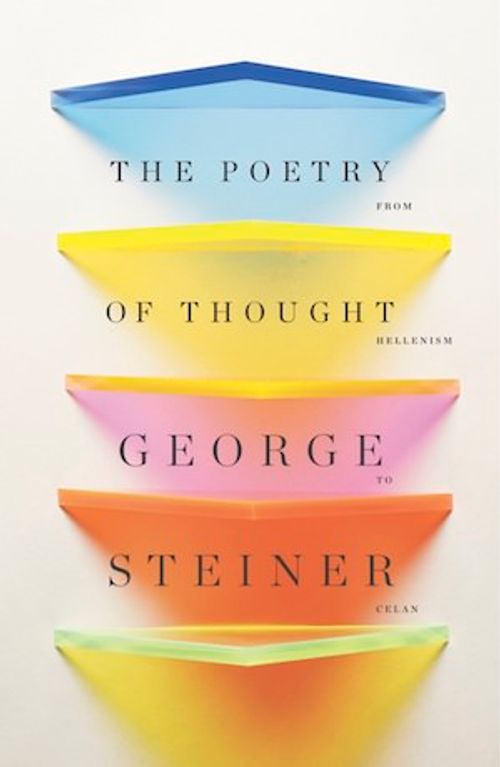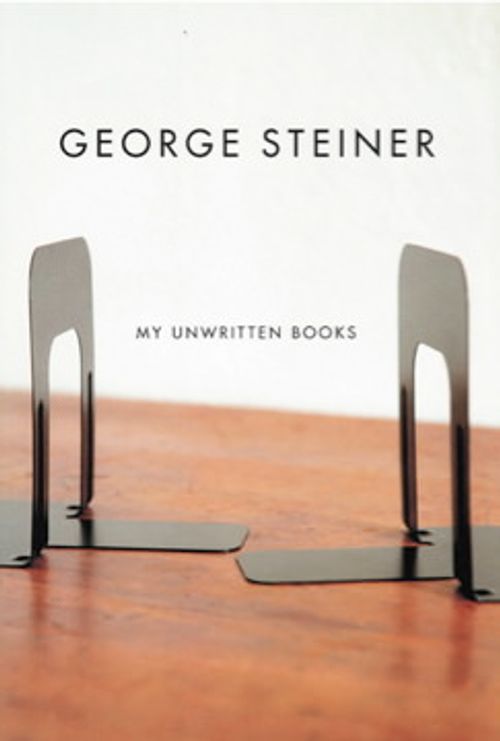George Steiner at the New Yorker
Fiction by George Steiner
Edited by Robert Boyers
With a contribution by Robert Boyers
Between 1967 and 1997, George Steiner wrote more than 130 pieces on a great range of topics for The New Yorker, making new books, difficult ideas, and unfamiliar subjects seem compelling not only to intellectuals but to “the common reader.” He possesses a famously dazzling mind: paganism, the Dutch Renaissance, children’s games, war-time Britain, Hitler’s bunker, and chivalry attract his interest as much as Levi-Strauss, Cellini, Bernhard, Chardin, Mandelstam, Kafka, Cardinal Newman, Verdi, Gogol, Borges, Brecht, Wittgenstein, Chomsky, and art historian/spy Anthony Blunt. Steiner makes an ideal guide from the Risorgimento in Italy to the literature of the Gulag, from the history of chess to the enduring importance of George Orwell. Again and again everything Steiner looks at in his New Yorker essays is made to bristle with some genuine prospect of turning out to be freshly thrilling or surprising.
Paperback(published Jan, 01 2009)
- ISBN
- 9780811217040
- Price US
- 22.95
- Price CN
- 20
- Trim Size
- 5x8
- Page Count
- 304
Ebook(published Jan, 01 2009)
- ISBN
- 9780811221658
- Price US
- 17.95



